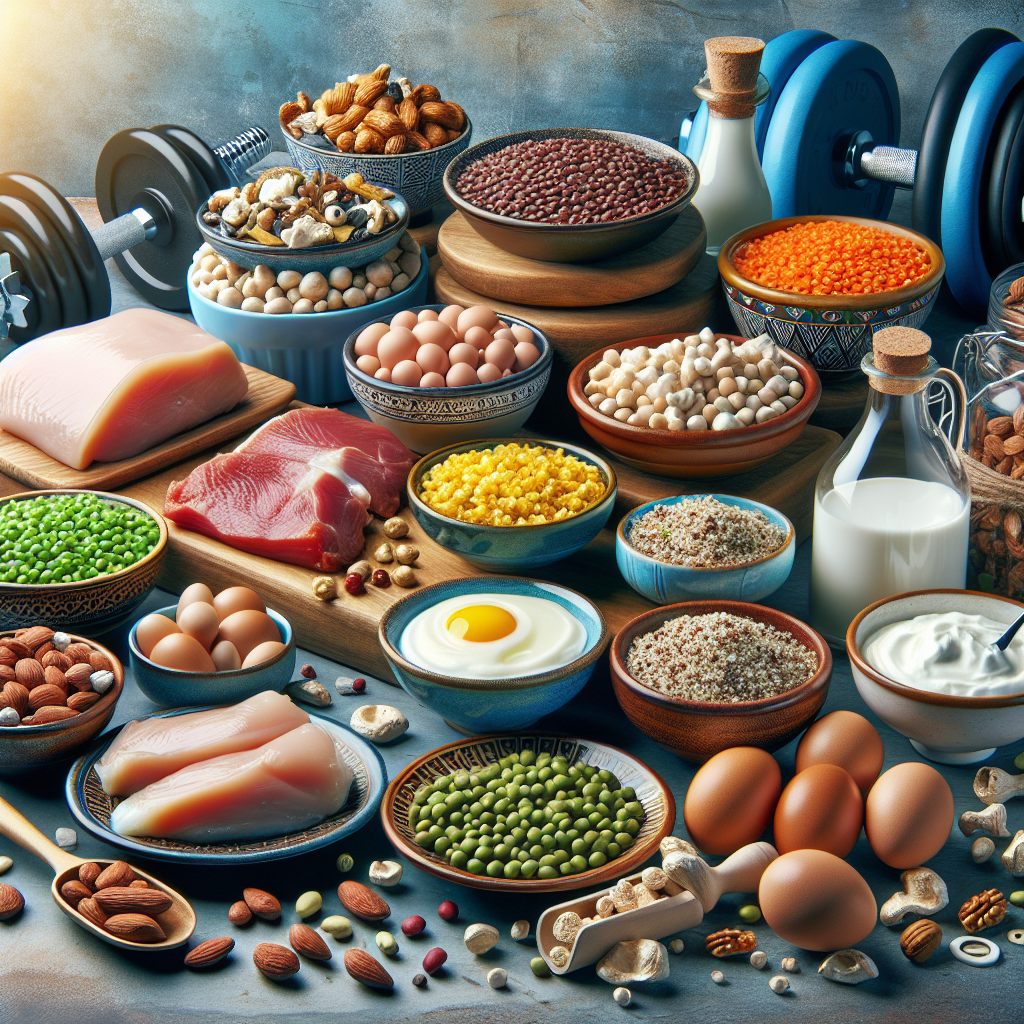
Introduction
Whether you're a dedicated fitness enthusiast, a busy parent, or simply someone aiming to maintain a healthy lifestyle, effective recovery is a pivotal aspect of your journey. Muscle recovery is vital for your overall well-being, irrespective of age or fitness level. In this blog post, we'll explore the top protein sources for effective recovery that cater to men, women, and children alike. Hint: it's not just about shakes and bars!
The Importance of Protein for Recovery
Known as the muscles' building blocks, protein plays a crucial role in your recovery process. During physical activities, your muscles endure stress and develop tiny tears. Your body requires protein to repair these tears, strengthen, and get ready for the next challenge—whether it's a tough workout, playing with your kids, or a demanding workday.
According to research published in the Journal of the International Society of Sports Nutrition, consuming protein immediately following exercise significantly boosts muscle protein synthesis. In simple terms, protein helps your muscles recover faster and more efficiently. Let’s delve into the prime protein sources beneficial for everyone in the family!
Top Protein Sources for Effective Recovery
1. Lean Meats: Your Prime Protein Source
If you’re fond of meat, lean options like chicken breast, turkey, and lean beef cuts are excellent choices. These are loaded with high-quality protein, supplying essential amino acids needed for muscle repair. The American Journal of Clinical Nutrition notes that lean meats can provide roughly 25-30 grams of protein per 100 grams.
2. Plant-Based Proteins: Power in Plants
For those following a plant-based diet, lentils, chickpeas, quinoa, and tofu are fantastic protein-rich options. Besides being versatile, plant proteins are gentle on the stomach, making them great for kids and those with sensitive digestion. The Academy of Nutrition and Dietetics found that with proper combination, plant-based proteins can deliver all the essential amino acids.
3. Dairy Products: Milk Your Gains
Dairy products like Greek yogurt, cottage cheese, and milk are not only rich in protein but also provide bone-strengthening calcium. Whey protein, derived from milk, is a popular choice for post-exercise recovery shakes. Research published in the British Journal of Nutrition demonstrates that whey protein can accelerate recovery and stimulate muscle growth more effectively than other protein types.
4. Fish: Swim Towards Faster Recovery
Fish such as salmon, tuna, and mackerel are not just high in protein but also rich in omega-3 fatty acids, which help diminish inflammation and speed up recovery. Research from the European Journal of Sport Science shows that omega-3 fatty acids are pivotal in reducing muscle soreness and expediting recovery.
Maximizing the Benefits of These Protein Sources
Timing Matters
For optimal muscle recovery, aim to consume protein within a 30-minute to two-hour window post-physical activity. Known as the "anabolic window," this period is when your body efficiently absorbs and utilizes nutrients for muscle repair.
Controlled Portions
For adults, a daily protein intake of about 20-30 grams per meal is advisable. For kids, this amount can differ based on their age and activity, but generally, 10-20 grams per meal should be sufficient.
Embrace Variety
Avoid relying on a single protein type. Incorporating both animal and plant-based proteins ensures you get a comprehensive range of essential amino acids and nutrients necessary for recovery. Even picky eaters will find something they enjoy!
Benefits and Potential Side Effects
Main Benefits
- Enhanced Muscle Recovery: Protein aids in muscle repair and growth, alleviating soreness and fatigue.
- Overall Health: Provides essential amino acids and nutrients supporting muscles, bones, skin, and the immune system.
- Weight Management: High-protein foods help curb appetite and promote satiety, aiding in weight control.
Possible Side Effects and Precautions
Though protein is vital, consuming too much can lead to issues like kidney strain, especially in those with existing conditions. Balance your diet and consult a healthcare professional before making significant dietary changes, particularly for children and pregnant women.
Comparing Protein to Other Recovery Supplements
While protein is paramount in muscle recovery, it's not the sole player. Here are other popular recovery supplements and how they stack up:
- Creatine: Great for short, high-intensity activities but less versatile compared to protein.
- Branched-Chain Amino Acids (BCAAs): Target specific amino acids essential for muscle recovery but lack the comprehensive benefits of whole protein sources.
- Collagen: Beneficial for connective tissues but not as effective as traditional proteins in muscle recovery.
Personal Insights and Reviews
"Switching to a mix of lean meats and plant-based proteins has dramatically improved my recovery times!" - Jan from Munich.
Nutritionist Dr. Lisa Kaufmann emphasizes, "Incorporating a variety of protein sources in your diet is crucial for overall recovery and long-term health."
Many users report fewer muscle cramps and quicker recovery when adding omega-3 rich fish to their diet.
Frequently Asked Questions (FAQ)
How much protein do I need daily?
Generally, adults should aim for 0.8 grams per kilogram of body weight, with slightly higher amounts for children based on their age and activity levels.
Can I get enough protein from a plant-based diet?
Absolutely! With thoughtful meal planning, a plant-based diet can supply all essential amino acids.
Are protein supplements safe for children?
Whole food sources are preferable for children. Consult a healthcare provider before introducing protein supplements.
Conclusion
Including a variety of protein sources is crucial for effective recovery and overall health, whether you're a fitness-conscious individual, a busy parent, or a growing child. By balancing your diet with lean meats, plant-based proteins, dairy, and fish, you lay the foundation for a robust recovery process. Stay tuned to HealthyHerbology.com for more insights into optimizing your wellness journey, along with other dietary strategies and lifestyle tips!



